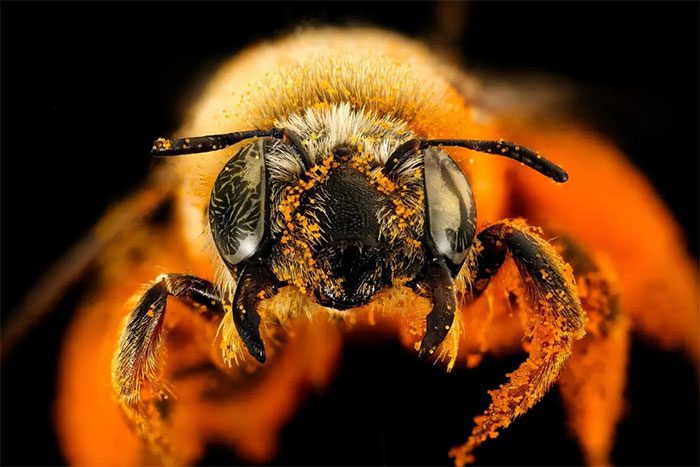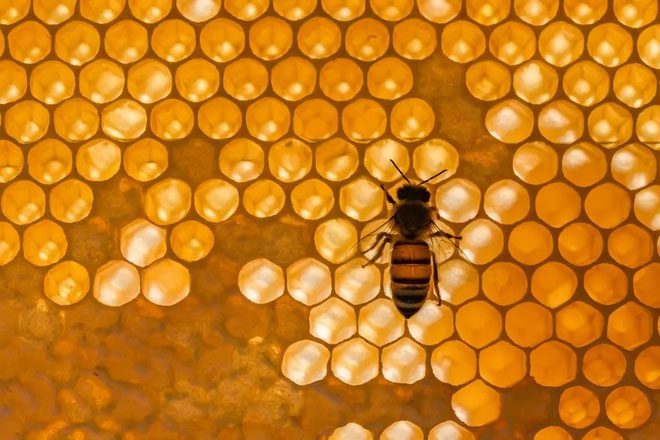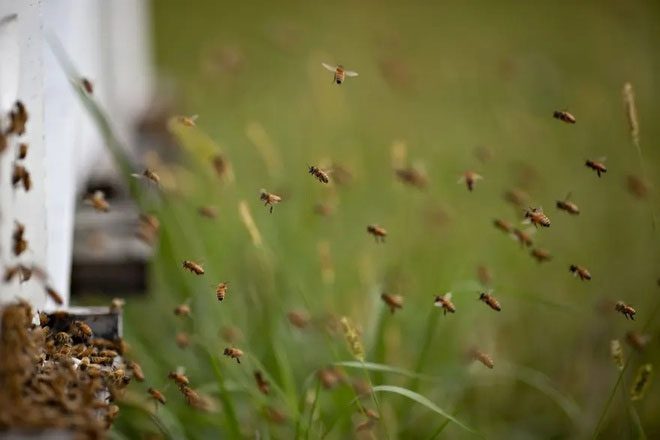When a bee is fed sugar, its mood improves, much like when humans enjoy a sweet treat. Bees also exhibit signs of “post-traumatic stress disorder.”
According to research by entomologists in the United States, bees are capable of experiencing joy, sadness, fear, and even mental health issues similar to humans.

Bees play an important role in the ecosystem. (Photo: The Guardian).
In the book What a Bee Knows: Exploring the Thoughts, Memories and Personalities of Bees, author Stephen Buchmann writes: “Bees have self-awareness, perception, and the ability to learn from experience.”
This explains the phenomenon of “colony collapse disorder,” which causes entire honeybee colonies to die within a season. According to Buchmann, alongside pesticide poisoning, human brutal activities have led to psychological harm among bees, resulting in mass die-offs.
Buchmann has studied bees and insects for over 40 years. Through his book, he hopes that humans will treat beneficial insects like bees more humanely.

The population of honeybees is severely declining due to human brutality. (Photo: The Guardian).
A 2007 study by Lars Chittka, a professor at Queen Mary University in the UK, showed that bees can learn to evade predators as an adaptive response.
Chittka concealed a robotic spider among flowers. When bees approached, the spider would catch them and then release them. After this negative experience, the bees learned to carefully observe flowers to ensure there were no spiders before landing.
Moreover, after multiple captures, the bees hesitated to land on the flowers even when there were no spiders present. This is a manifestation of “post-traumatic stress disorder,” a condition typically observed in humans and other mammals.
In a recent study, Chittka’s team found that bee brains can release dopamine and serotonin—neurotransmitters associated with pleasure commonly found in the human brain.

Not only do bees learn to evade predators, but they also feel “happy” when rewarded and scared when faced with danger. (Photo: The Guardian).
According to Chittka, when a bee is fed sugar, its mood improves, similar to how humans feel when enjoying sweets. This improved mood makes the bee more eager to forage compared to those that are not fed. Additionally, when bees encounter danger or anxiety-inducing situations, dopamine and serotonin levels decrease.
Buchmann agrees with this finding, asserting that bee brains have their own pleasure centers.
Chittka and Buchmann suspect that insects in general, particularly pollinators like bees, possess perception because they play such important ecological roles, necessitating a more sophisticated brain.
Previously, scientists believed that bees lacked perception or cognition because their brains are so small, comparable to a sesame seed, with very few nerve connections. With advancements in science and technology, humans now have the tools to analyze these tiny brains in depth.


















































